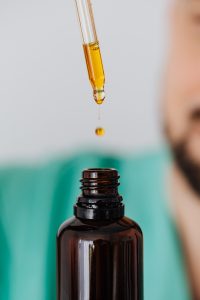 CBD oil has gained popularity over the last decade because of its claimed benefits when treating a variety of health issues, including anxiety, depression, and pain. However, can it improve sleep apnea symptoms? CBD is known to relieve insomnia symptoms to help you sleep peacefully during the night, but healthcare professionals recommend avoiding marijuana products if you have sleep apnea.
CBD oil has gained popularity over the last decade because of its claimed benefits when treating a variety of health issues, including anxiety, depression, and pain. However, can it improve sleep apnea symptoms? CBD is known to relieve insomnia symptoms to help you sleep peacefully during the night, but healthcare professionals recommend avoiding marijuana products if you have sleep apnea.
What is Sleep Apnea?
Sleep apnea is a common condition that causes frequent breathing disruptions throughout the night. Obstructive sleep apnea is the most common type, which occurs when the soft tissues in the back of your mouth and throat collapse to block your upper airway.
Every pause in breathing interrupts your sleep cycle and depletes your body of oxygen. Besides poor sleep quality, it can increase your risk of several health issues with no treatment, including cardiovascular disease, diabetic complications, memory loss, and mood changes.
CBD’s Effect on Sleep Apnea
CBD (cannabidiol) is a compound derived from the cannabis sativa plant, more commonly called marijuana. However, unlike marijuana, CBD doesn’t contain the THC compound, which causes psychoactive effects. This allows you to benefit from a homeopathic solution without feeling high.
Several studies have found CBD benefits insomnia sufferers, but healthcare professionals report that more research is needed to determine its effects on sleep apnea. The American Academy of Sleep Medicine recommends excluding sleep apnea from the list of chronic conditions for medical cannabis programs. There’s not enough evidence to support the effectiveness, safety, or tolerability of its use for sleep apnea.
While CBD can help you fall asleep quickly and relieve stress, it also causes your muscles to relax. Additional research is necessary to determine the effects this can have on the muscles in the back of your mouth when relaxed. Currently, CBD for sleep apnea isn’t approved by the U.S. Food and Drug Administration.
Options to Treat Sleep Apnea
Although many natural remedies can benefit sleep apnea sufferers, they aren’t a substitute for traditional treatments. You have more options than ever to treat obstructive sleep apnea, including:
- CPAP Machine: A CPAP machine is the most traditional method of treating sleep apnea. It delivers a steady stream of air through a mask worn over the mouth or nose to prevent breathing disruptions.
- Oral Appliance: An oral appliance is an effective method to treat mild-to-moderate obstructive sleep apnea. It positions the tongue and jaw to prevent them from blocking the airway.
Restful nights are possible with the help of your sleep specialist. They’ll create a personalized treatment plan and recommend lifestyle changes to manage your sleep apnea.
About Dr. Stephanie Gorczyca
Dr. Gorczyca earned her dental degree from the UCLA School of Dentistry and has regularly continued her education in various specialties, including laser dentistry and dental sleep medicine. She uses the most groundbreaking solutions in dentistry. Dr. Gorczyca is a member of several professional organizations, including the American Dental Association. Request an appointment through her website or call (702) 602-4000.
